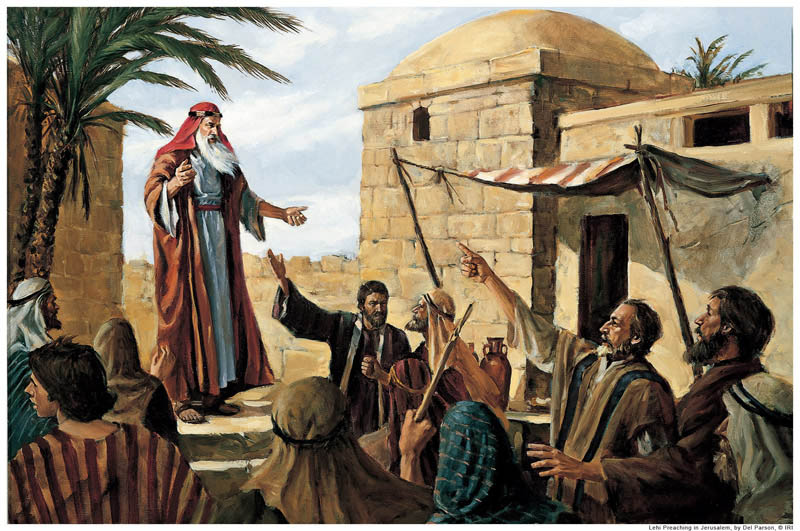Most people wish that weren’t true and sometimes their desire for an opposition-free life leads them to question God. Some feel God ought to step in to prevent all trials and hardships.
 The Book of Mormon does an admirable job of explaining just why this would not be in our best interest. While we think we’d like a problem-free life, we would have few opportunities to grow if this happen. Our greatest growth often comes from our trials, when we’re given the opportunity, if we choose it, to successfully face difficult things and to learn to handle them. We often emerge from trials knowing ourselves better and realizing we can do more than we thought possible.
The Book of Mormon does an admirable job of explaining just why this would not be in our best interest. While we think we’d like a problem-free life, we would have few opportunities to grow if this happen. Our greatest growth often comes from our trials, when we’re given the opportunity, if we choose it, to successfully face difficult things and to learn to handle them. We often emerge from trials knowing ourselves better and realizing we can do more than we thought possible.
However, there is an even greater benefit to having opposition in the world. Lehi told his son that the entire plan of salvation would fall apart if there were none.
Lehi was dying when he held this conversation with his young son and he chose this particular topic for his final words of wisdom because Jacob had faced a particularly trying life. He had been born to a family that was homeless. They had been forced to flee their home, leaving everything behind, due to the persecution that followed Lehi’s work for God as a prophet. His two older brothers were very wicked and had even attempted to kill the fourth son, Nephi. Others in their party were also disobedient to God. Traveling through the wilderness in this sort of confrontational and sometimes dangerous situation had made Jacob’s childhood very difficult. His father, however, reminded him he had also seen God’s love and protection. He told Jacob that his brother Nephi would finish raising him and consecrated his son to do God’s work throughout his life.
He then explained the role of opposition in our lives. He began by reminding Jacob that we learn right from wrong and then do our best to make good choices. The Savior’s atonement, which had not yet happened, would make it possible to be forgiven for sins. He then reminds Jacob that even the atonement could not have happened if sin had not come into the world.
Lehi explained that if there weren’t opposition, there would be no righteousness or sin, and this would thwart the purposes of the gospel of Jesus Christ. We are here, in part, to learn to choose righteousness. If there is no law, Lehi argues, there is no sin. If there is no sin, then naturally there is no righteousness. We can’t choose righteousness unless there is another choice. Righteousness brings about happiness, and if righteousness and happiness didn’t exist, then there would be no sin or punishment. If there were not choices in life and no consequences, there would be no God. (There would be no need for God.) And, of course, if there is no God, there is nothing—no Earth, since He created it, and no people, since He created us.
Read the entire explanation in the Book of Mormon free online.
Lehi took the issue all the way back to the Garden of Eden. Adam and Eve lived a perfect life—so God put a bit of temptation—opposition—into that perfect life. There was one thing they were told not to do, but they were also told it was their choice. They chose to partake of the fruit, and while it seems to be a terrible thing, in reality, it was necessary for life to happen. They had no children until they left the Garden. Lehi helps Jacob understand that we all have the ability to act and to be acted upon and these things give us experiences that will prepare us for eternity. While trials are not pleasant, they are without question necessary for us to grow and to become all we’re capable of being. We learn from the hard things in life, not the easy ones.
If nothing ever goes wrong, we never really appreciate the things that go right. An awareness of happiness requires experience with sadness. We can’t prevent the trials, but we have the right to choose how to view them and whether or not they will allow us to grow.
